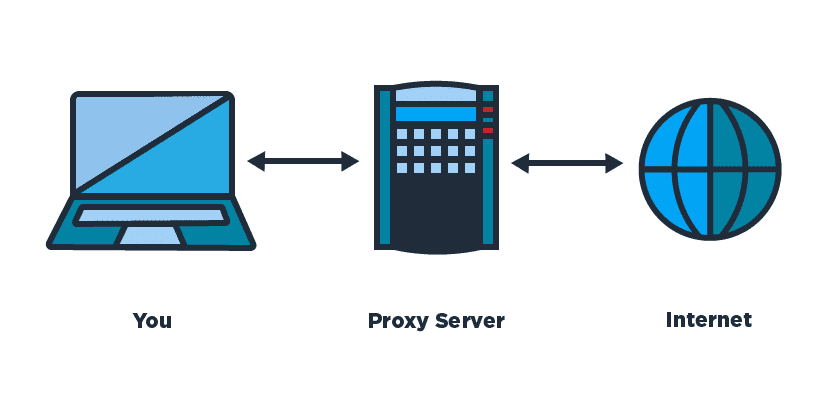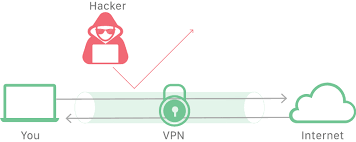Are you worried about your privacy online? Do you wonder if companies, government firms, or hackers monitor your internet searchers? If yes, you are not alone.
People concerned about their internet privacy frequently question the best software to secure their online activity, and most, if not all, have heard about a proxy server and a VPN.
But what is a proxy, and how does VPN work? Are their features similar or different from one another? How can you choose an ideal tool for yourself?
Stick around to find the answers.
Table Of Contents
What Is a Proxy?


Proxies are remote public servers accessed through a desktop program or a web application. They access the sites on your behalf. Simply put, when you send a web request, the proxy forwards it to the site and then sends it back to you, acting as an intermediary.
This process keeps your IP address hidden and prevents revealing your private data.
Features and Advantages
- There are several types of proxies that serve the unique needs of users. Common proxy servers include transparent proxies, SOCKS5 proxies, and HTTP.
- Proxies act like firewalls between your PC and the internet, keeping hackers from performing malicious activities.
- Whether you want to stream a season, browse the internet, listen to music, or shop your favorite online products, you can do it all without exposing your IP or getting overwhelmed with vexing ads.
- Are you unable to access a specific website because you’re located in the US, and it is available only in, say, the UK? Fret not! Connect to a proxy server and access any website on the go!
- Do you run a business and are unsatisfied with your employees’ productivity? Proxy servers allow you to block distracting sites to keep workers from accessing them.
What Is a VPN?


A VPN, or virtual private network, encrpts the data sent and received from the web. This keeps your data secure and lets you privately access the internet.
So, regardless of your network, your connection is not revealed. VPNs also conceal your IP address, enabling you to change your location. This allows you to access geo-restricted sites.
For instance, your favorite Netflix season might not be available from where you’re visiting the site. If, however, you have a stable VPN connection, you will not encounter such an issue.
Features and Advantages
- The three main categories of VPNs include intranet-based site-to-site, extranet-based-site-to-site, and remote access, offering varying features.
- You may not know who is spying on your online activity and keeping track of your internet content. Fortunately, VPNs secure your network and prevent individuals, browsers, and software from accessing your connection.
- Even if you’re a casual internet user – and not the owner of a huge corporation – you need online privacy. Your personal data, including bank account details and credit card information, is at risk. VPNs provide a high level of security through encryption.
- Your ISP slows down the service speed when you’ve consumed a specific amount of available data. VPNs allow you to avoid the data limit because your ISP can’t see how much data you’ve used.
- Your internet speed is often slowed down intentionally when you visit particular websites or get involved in specific online activities. VPN, however, encrypts your data and keeps others – your ISP, in this case – from monitoring your online activity.
How Are Proxies and VPNs Different From Each Other?
Individuals wanting to secure their online activities often confuse the two terms. While both are similar in that they hide your IP address, allow you to access sites anonymously, and protect your privacy, they differ significantly.
Here’s how they are two contrasting software.
- Costs. VPNs can get costly, and any free options available allow limited data use per day. As such, most people prefer paid options. Proxies, on the other hand, are usually free.
- Privacy. While both work excellently to promote online privacy, VPNs have an edge because they encrypt your web activity, unlike proxies that only encrypt your IP address.
- Speed. Both offer optimal speeds as long as you choose quality, paid software. Of course, free proxies and VPNs will have slower speeds. However, a few netizens believe VPNs have faster speeds on average.
- Coverage. Proxy servers hide a single website at a time, whereas VPNs encrypt all your web activity. But all web activity encryption often slows the surfing speed, which is highly unlikely with proxies.
Proxy VS VPN: Which One to Choose?
Both proxies and VPNs offer distinct benefits, and it would be wrong to consider one better than the other. Your needs should determine the software you choose.
For instance, if you do not mind paying for coverage of all websites and apps, VPNs can be an ideal option for you. However, if you want to enjoy free data protection and need to access a single website or app, proxies are the way to go.
Conclusion
Nobody is pleased to know someone is keeping track of their online activity. Privacy is all that matters by the end of the day. In fact, if you run a business, you must not leave securing your connection as an afterthought.
We discussed the unique features and benefits of both proxies and VPNs, and you can pick one based on your needs.
